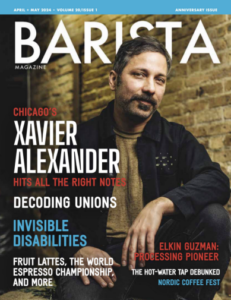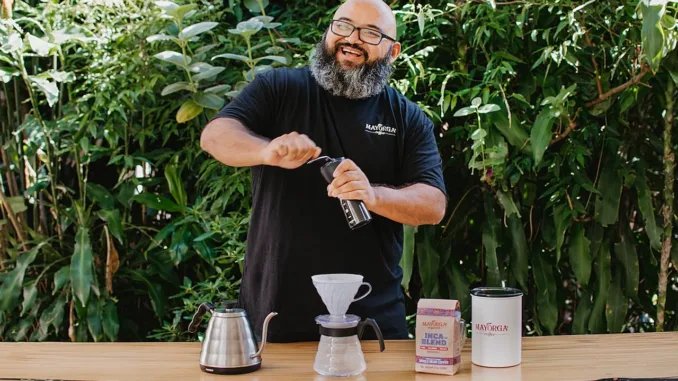
We talk to the longtime Roasters competitor about winning the national championship in Chicago.
BY CHRIS RYAN
BARISTA MAGAZINE ONLINE
Photos courtesy of Mayorga Coffee
At the 2023 U.S. Roasters Championship in Portland, Ore., last April, Eduardo Choza wasn’t as prepared as he wanted to be for the annual competition, which includes green grading, planning a roast, and executing that roast.
Roaster manufacturer Stronghold had recently taken over sponsorship of the event, and competitors would execute their roasts on Stronghold S7 machines. Eduardo, though, didn’t have time to practice using the machine before heading to Portland. He managed to have a short pre-competition session with the roaster at the event, and despite the stress, Eduardo earned fourth place at the 2023 U.S. Roasters Championship,
But he wanted to do things differently at the 2024 U.S. Roasters Championship, which took place in Chicago last month. He made sure he was prepared, arriving early in Chicago to practice on the Stronghold machine, among other steps. The approach paid off, as Eduardo—who serves as director of coffee at Mayorga Coffee in Rockville, Md.—became the 2024 U.S. Roasters Champion; he’ll advance to the World Coffee Roasting Championship, taking place June 27-29 in Copenhagen, Denmark, as part of World of Coffee.
On the heels of his win, Eduardo talked to us about preparedness, representation in competition, and more.
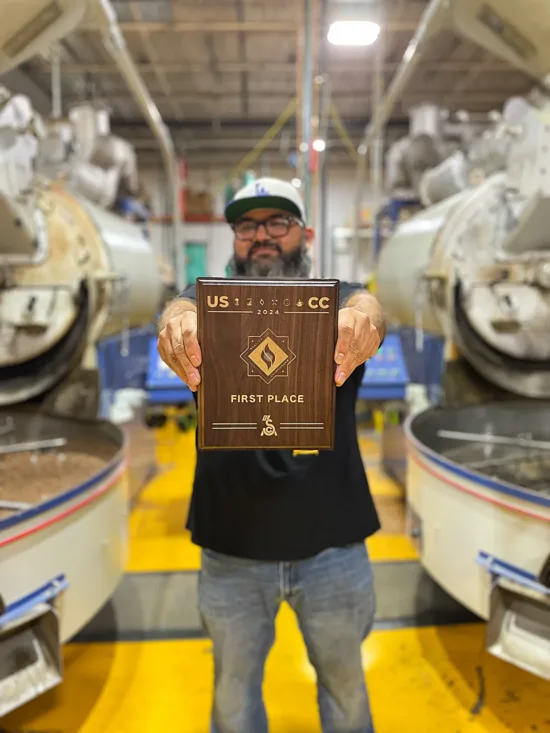
Barista Magazine: You had competed in Roasters before; what do you like about competing, and why have you continued to do it?
Eduardo Choza: I started roasting competitions in the 2018-19 season, I believe. I started just because it was available, really. The first competition I ended up signing up for was qualifiers at Nashville (Tenn.). And it was more to see what was out there, what that world was like, and also to represent, because I had seen pictures of other competitions and I thought it would be cool to get up there and represent for our company, and to see more Latino faces up there as well.
What I like about competing is that it helps people see our company, and to see other Latinos in coffee in a different space in the supply chain besides being coffee growers and coffee producers. The reason why I’ve continued is because of the support that I’ve gotten from people and the commentary of, hey, it’s awesome to see you up there, and really, to see the inspiration that people get from it. I made it to the finals three times and this is the one time that I got to first place, but it’s been a lot of hard work in the process.
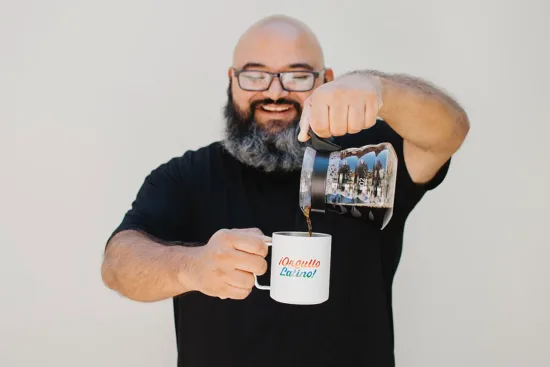
Given what happened with your experience in Portland last year, how did you prepare for the competition this year?
This year, I prioritized preparation. I made sure that I was very intentional with my time for this competition because to me there were a lot of people that were supporting me and believed that I’m capable of great things. Also, I think I went on record saying a few times that had I had more time with the machine in Portland, I would have won. So I didn’t want to eat my words either.
Preparation helped me, I think. Showing up to Chicago almost a week early and connecting with the coffee community there, with Big Shoulders Coffee in Chicago—shout-out to them, they opened their doors and they were really great hosts, great hospitality. They were a big part in my preparation; I will be thankful for them for a long time.
Was there any other prep you did this year that you think helped?
The main prep that helped was getting time on the machine and practicing my workflow, making sure that we could sort and remove coffees that we didn’t want to use and still roast three to four batches during a 75-minute period. Pretty much, following the rules and making sure that I could execute on that is what really helped out.
I think the other thing that helped is just roasting coffee a lot the last six months. I roast at least two days a week, for a whole-day period. And that wasn’t typical last year, so just getting back on the roaster helped me.
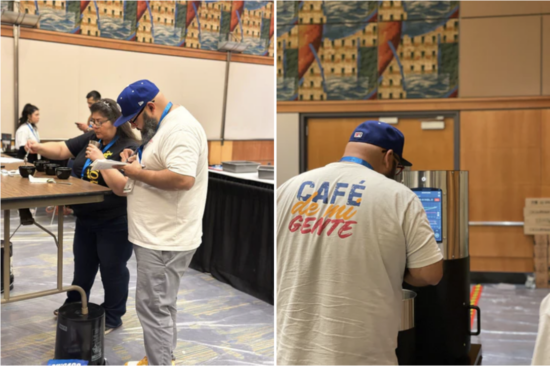
What was it like for you to win?
Ya know, to win, I actually think it’s a bigger deal for other people, and I think that’s what makes it mean something to me. I think winning was not a shock because I feel like I put myself in that position to win, but when you’re up there and it’s actually happening in the moment, things are surreal. I think a lot of times I say it feels like a movie because it doesn’t feel real.
I feel like it’s a win for a lot of people that have been marginalized. It’s a win for other companies of color. It’s a win for people in Latin America that have been supporting me and see the work that Mayorga does and support our work as well. So I think in that sense it was beautiful, and I got really emotional during those moments.
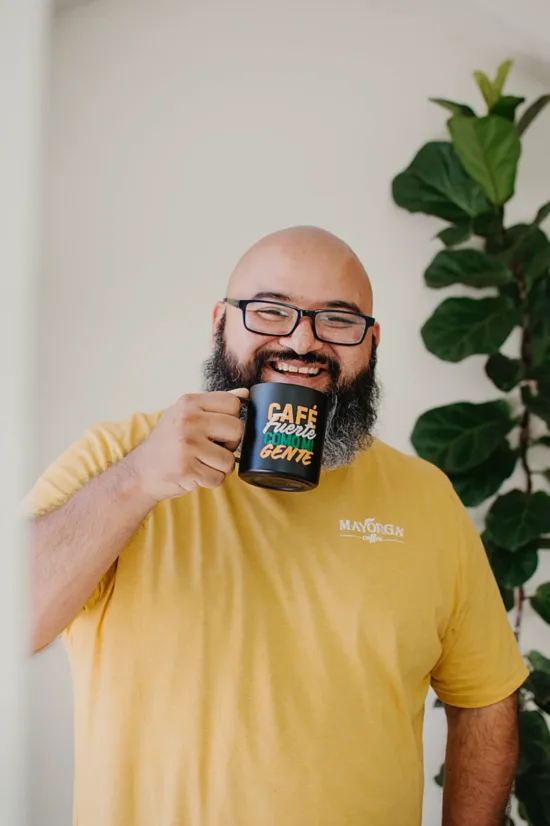
Finally, you’ll compete in Worlds at Denmark this summer—what are your initial thoughts on representing the U.S. and how you’ll approach the event?
It’s really an honor because I’m representing the U.S. and more as well. So my approach is going to be to try to make everybody proud, to make sure that the U.S. is well-represented, that we’re intentional with the practice, and that we know going in that we have the information required. So networking is huge for that—I’ve reached out to Andrew Coe (2023 World Coffee Roasting Championship third-place finisher); I also talked to Nick (Berardi, 2022 U.S. Roasters Champion) a bit at the competition. And I think every year we want to do better, right? So I need to continue in that effort and make sure that the U.S. is on that podium when they call the final results for the Worlds.
Subscribe and More!
Out now: It’s the April + May 2024 issue of Barista Magazine! Read it for free with our digital edition. And for more than three years’ worth of issues, visit our digital edition archives here.
You can order a hard copy of the magazine through our online store here, or start a subscription for one year or two.

